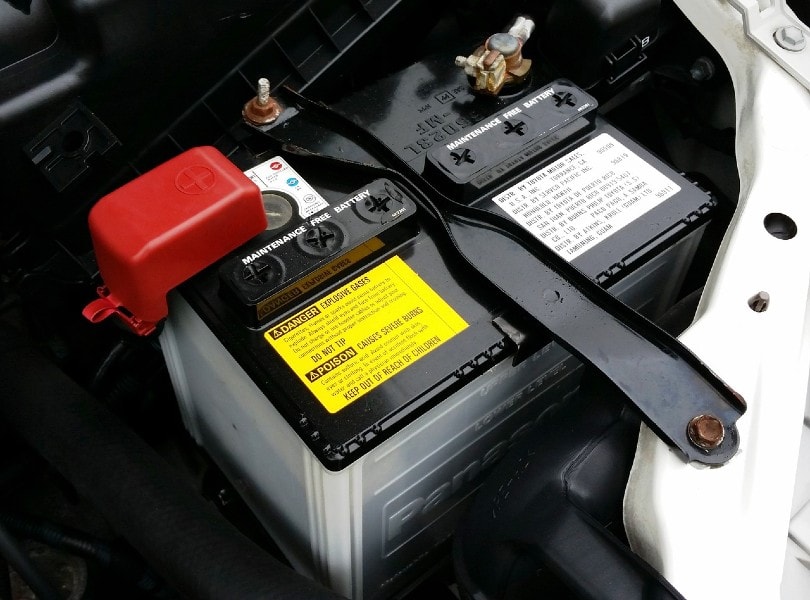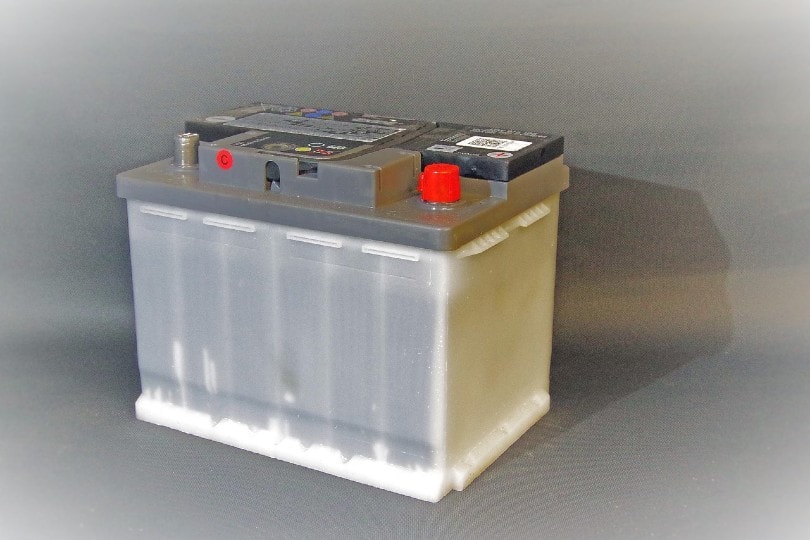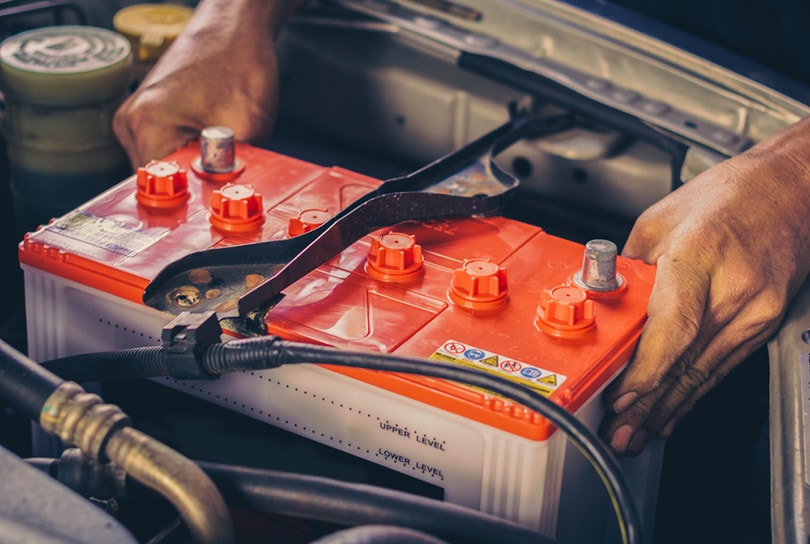How Often Should You Replace a Car Battery? Signs, Factors & FAQs
-
Pete Ortiz
- Last updated:

Nothing makes your heart sink faster than jumping in your car during the morning rush to work, turning the key (or pressing the button), and sitting for several silent seconds as you gradually realize your battery is dead.
A car battery will last 4–5 years on average, so it’s easy to forget that it will eventually fail. To help ensure you aren’t left stranded by a dead vehicle, we’ll discuss how often you should replace a car battery and cover some signs that it’s on its way out.
How Often Should You Replace a Car Battery?
Under normal conditions, you will need to replace your car battery every 4–5 years. Several variables can shorten a car battery’s life:
- High temperatures can cause battery fluids to evaporate and accelerated chemical reactions to facilitate corrosion
- Cold temperatures lower battery capacity and sap any remaining power
- Heavy vibrations from a faulty mount or rough roads can loosen metal plates
- Short commutes prevent full charges and lead to acid stratification, which causes concentrated acid to damage the plates
Each jump start will also steal some of your car battery’s life. Needing a jump is sometimes hard to avoid, such as when cold weather drains the battery, but it’s preventable with conscientious habits. Keeping car doors open, leaving lights on, and overloading your car with charging devices are all factors under your control.

Signs Your Car Battery Needs Replacement
Frequent jump starts are the surest indication that your car battery needs a replacement, but you may notice warning signs before the first failed start. If it’s struggling to start and taking longer to turn on, which is even more common during seasonal changes, it’s often ready for a change. You may also notice lights starting to flicker or become dimmer than usual. And if the “check battery” light is on, it’s a dead giveaway that you have an issue.
You can also look for physical signs of failure around the battery itself. A warping case can lead to cracks and leaks, and corrosion, which you’ll see as powdery blue-white stains around the battery terminals, is an obvious sign of a fluid leak or that it’s due for a replacement.
How to Test Your Battery

You should test your battery at least twice a year to prevent unexpected failures. It’s also crucial to check it if you start noticing signs that it’s dying. Although an old battery is often to blame when your car doesn’t start, it could be a faulty alternator or an issue with your starter. It’s crucial to confirm the cause before springing for an unnecessary replacement.
Use a car battery tester to find the problem. If your battery isn’t dead yet, let your car sit unused for a few days to see if it holds a charge. Lift your car’s hood, locate the battery, and connect the battery tester’s cable clips to the appropriate terminals per the use instructions.
After turning it on, the battery tester will supply information like the battery’s voltage, cold-cranking amps, and charging capacity.
You can also use a multimeter to see if the voltage is around the standard 12 volts. Drain the surface charge by leaving the radio and lights on for a few minutes, and set the multimeter to 15–20 volts. Turn the electronics off and test the battery.
Connect the multimeter to the battery and check the voltage. Then, turn on the electronics in the car and test the battery for a revised voltage of around 9–10 volts. If it’s below 5, it will likely need a replacement.
Headlight Test
You can do a rough battery test with your headlights in a pinch. Start the car and turn the headlights on. Put the car in park and rev the engine. If the headlights get brighter when you hit the gas, your battery may be dying, and you should get it to a service center as soon as possible.
Final Thoughts
Frequent driving, proper storage, and regular maintenance and inspections are the surest ways to get the most longevity out of your car battery. A well-maintained car battery will last 4–5 years, and although there’s not much you can do to extend its life, you can prevent premature death with thoughtful care.
Featured Image Credit: BruceEmmerling, Pixabay
Contents


